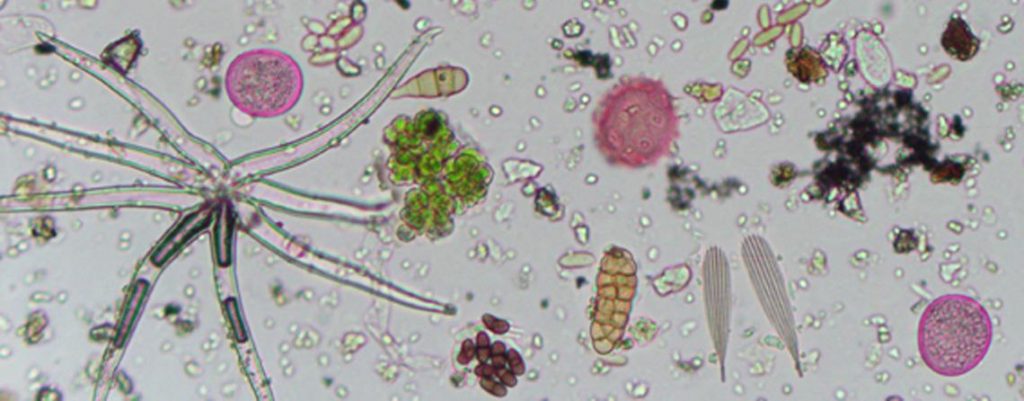Aerobiology and palynology

We study the diversity of bioaerosols so as the processes involved in the emission and dispersion of particles of biological origin in the atmosphere. By focusing on airborne pollen and fungal spores, we set the foundation for modelling of aerobiological phenomena and forecasting their impact.
The group started to study pollen in 1989 focusing on feeding habits of insects, in particularly honeybees and hoverflies. We supported the local Association of beekeepers “Dr Jovan Živanovic” to register the protected designation of origin for “Fruška gora lime tree honey”. Since 1999 the research was oriented towards the agents of allergies when the group started continuous sampling bioaerosols by using Hirst type volumetric pollen and spore traps.
In the BioSense Institute, classical aerobiology has the chance to utilise advanced IT tools both for sampling and detection of bioaerosols and for data analytics. We are striving to set the basis for source-oriented modelling of airborne pollen concentrations. Therefore, we are coupling remote sensing data and airborne pollen data to map sources of the most important allergenic pollen, and setting field experiments to parametrize emission of the pollen.
Our group is also exploring the possibilities for using flow cytometry in automated detection and quantification of bioaerosols (i.e. pollen and fungal spores). We are also developing an automated pollen monitoring system and compare its performance with classical Hirst trap and microscopy-based method.
We host an hourly resolved long term collection of air samples from typical agriculture region. In addition, we have reference signals of scattering, fluorescence spectrum and fluorescence lifetime collected by RAPID-e device for the majority of airborne pollen.
Projects:
2017-2020 “Real-time measurements and forecasting for successful prevention and management of seasonal allergies in Croatia-Serbia cross-border region” – RealForAll, INTERREG IPA-CBC Croatia Serbia
2020-2022 “Real-time detection and quantification of bioaerosols relevant for human and plant health” – BREATHE, Fond za nauku Republike Srbije
2016-2020 Monitoring polena u vazduhu na teritoriji AP Vojvodine, Pokrajinski sekretarijat za zaštitu životne sredine